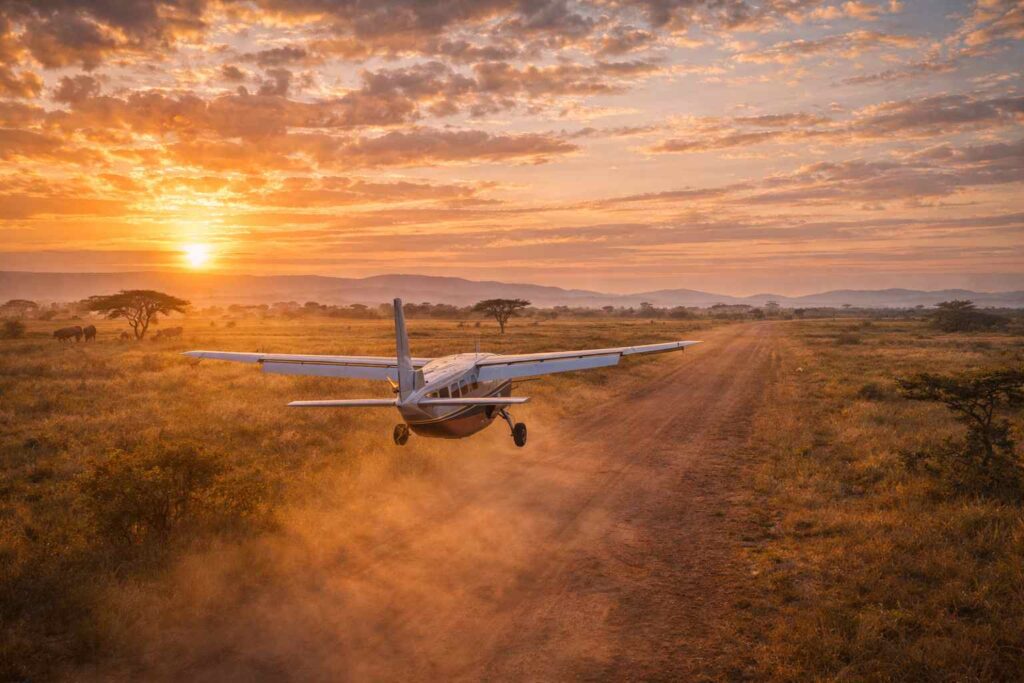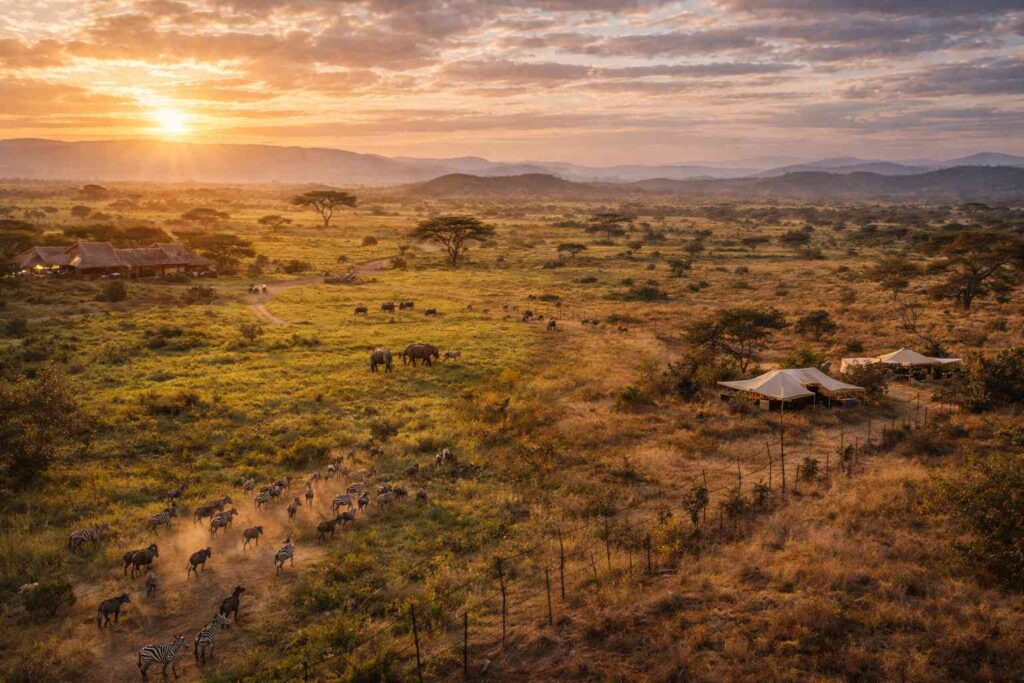Going on safari is not just for the young and fit. With the right planning and precautions, travelers with chronic health conditions like diabetes, hypertension, asthma, and severe allergies can absolutely enjoy an African safari. This guide offers expert advice to help you travel safely and confidently—even in remote wilderness areas.
Safaris with medical conditions: What to know before you go
Which health conditions require special precautions?
Certain chronic conditions can be impacted by the heat, dust, altitude, or remoteness of safari destinations. The most common include:
- Diabetes – Requires strict meal and medication timing.
- Hypertension (high blood pressure) – May need monitoring due to heat or activity.
- Asthma and respiratory issues – Can be triggered by dust and dry air.
- Severe allergies (food, insect stings) – Need access to emergency medication.
- Heart conditions – Must avoid overexertion or extreme temperatures.
Speak to your doctor at least 6–8 weeks before travel to assess your fitness and adjust medications or routines as needed.
Pre-safari planning: Adapting the trip to your health needs
Choose the right destination and itinerary
Not all safaris are the same. Opt for:
- Fly-in safaris instead of long, bumpy road transfers.
- Lodges with medical access or communications (ask about satellite phones or emergency plans).
- Private or semi-private tours that allow schedule flexibility.
Inform your operator in advance
Share all relevant health details with your safari provider before booking. This allows them to:
- Arrange special meals (for diabetes or allergies)
- Provide accessible rooms or vehicles
- Avoid strenuous activities
Managing medication and routine care on safari
How to safely carry medications
Bring twice the quantity of all medications you’ll need, and keep them:
- In original packaging with prescription labels
- In your carry-on luggage, not checked bags
- With a doctor’s letter detailing your condition and treatment
Tips for temperature-sensitive medications (like insulin)
- Carry a cooling pouch or insulated medical travel bag
- Ask lodges to refrigerate medications, if needed
- Maintain your regular schedule, even if you’re changing time zones
Keep a personal medical file
Include:
- Medical history and condition summary
- Emergency contacts
- Medication list with dosages
- Insurance and evacuation coverage details
On the ground: Staying safe and comfortable
Stick to routines
Even in the bush, you can:
- Eat regularly and as needed (carry snacks)
- Stay hydrated
- Avoid direct sun or extreme heat if it aggravates your condition
Know how to respond to emergencies
Ensure you know:
- Where the nearest hospital or clinic is
- The emergency response plan of each lodge
- How to reach evacuation services if needed (like AMREF Flying Doctors)
Final word: Yes, you can safari with a medical condition
With preparation, communication, and the right support, people with chronic health conditions can enjoy the magic of a safari without compromising their wellbeing. The key is to plan ahead, stay informed, and work with experienced tour operators who understand your needs.
FAQs about Safari travel with medical conditions
Yes, many travelers with diabetes safely enjoy safaris. Choose lodges that can accommodate meal timing, carry enough insulin in a cooling pouch, and keep snacks with you to manage blood sugar levels.
As long as your condition is well-managed, a safari can be safe. Avoid excessive heat and stress, stay hydrated, and make sure your itinerary includes rest time. Always bring enough medication and check with your doctor beforehand.
Most lodges have access to medical evacuation services like AMREF or Okavango Air Rescue. Reputable operators will also have emergency protocols in place and communication tools like satellite phones. It’s essential to have travel insurance with medical evacuation coverage.
Yes, but carry it in original packaging with a doctor’s letter. Some countries may ask to see prescriptions at customs. It’s best to keep medications in your hand luggage and bring extra in case of delays.
Many lodges can cater to food allergies if informed in advance. If you have severe allergies (e.g. to insect stings), bring your own epinephrine auto-injector and tell your guide or lodge manager where to find it in case of emergency.
Yes. Fly-in safaris reduce physical strain from long drives and are recommended for travelers with mobility issues or chronic health concerns. They also provide quicker access to medical facilities if needed.






